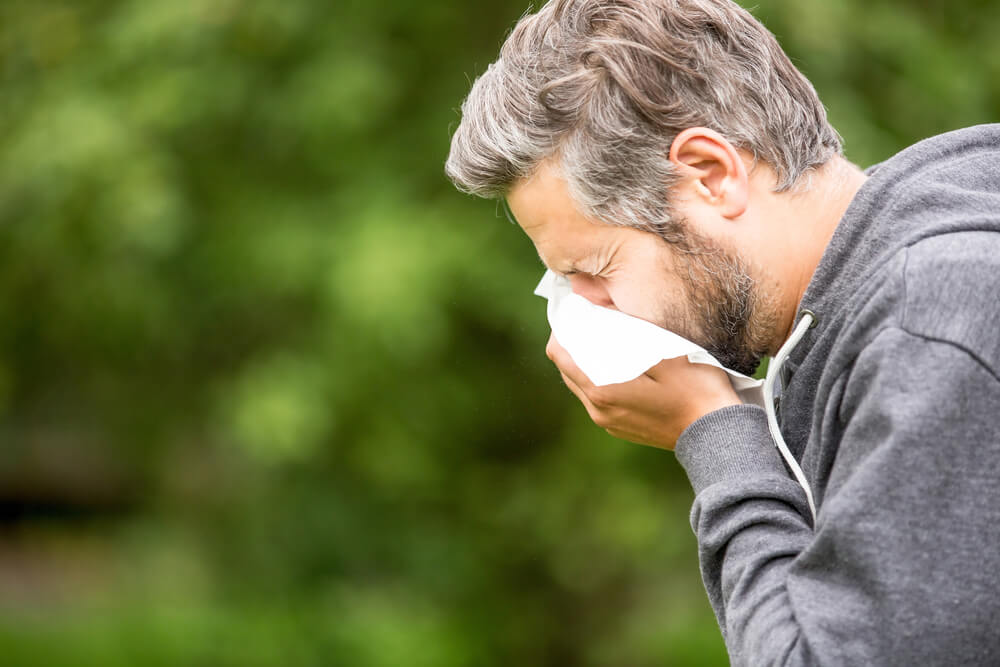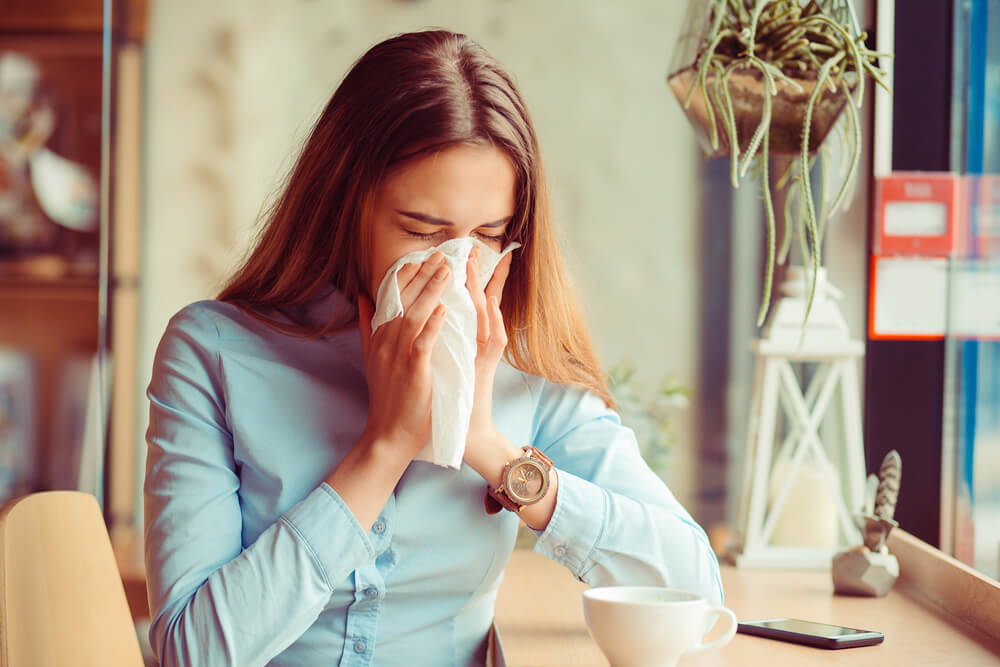As the warmth of spring unfurls and summer advances, an unwelcome companion often arises in the form of hay fever. This prevalent allergy condition affects countless individuals globally, becoming an annual scourge that jeopardizes both productivity and well-being. Hay Fever, scientifically known as allergic rhinitis, is mainly driven by pollen from trees, grass, and weeds, leading to a variety of discomforting symptoms ranging from sneezing, itching, and teary eyes to nasal congestion and lethargy.
Despite its deceptive moniker, hay fever is, in reality, not triggered by hay, nor does it induce a fever. Nonetheless, when left unmanaged, hay fever can significantly influence your everyday activities, ability to work efficiently, and overall quality of life. Specific segments of the population find their hay fever symptoms so acute and relentless that seeking relief becomes a priority.
The purpose of this article is to arm readers with strategically designed, research-backed hay fever tips. Discover practical hay fever tips on how to beat hay fever and navigate the pollen-laden months with minimal disruption. Just as importantly, these tips aim to assist individuals in reducing their reliance on over-the-counter medicines, steering them towards more natural and sustainable methods of hay fever help. For personalized guidance and expert care, consult the Allergist in Miami.
Basics of Hay fever
What it is and its common triggers
Have you ever wondered what hay fever is? Hay Fever, otherwise referred to as allergic rhinitis, is an overactive response of the immune system to airborne substances, primarily pollen. These pollen particles, originating from various trees, grasses, and weeds, infiltrate the nasal passage and trigger the release of histamine. This compound causes the well-known symptoms of hay fever. Dust mites, mold spores, and pet dander can also trigger hay fever, transforming even indoor environments into potential battlegrounds for allergy sufferers.
Managing hay fever allergies begins with understanding that the severity of hay fever symptoms can significantly differ among individuals and can fluctuate depending on the day’s pollen count and weather conditions. On hot, windy days, we often see a heightened amount of pollen dispersed in the air, resulting in a potential spike in hay fever discomfort.
Signs and symptoms to look out for
Hayfever symptoms often mimic those of a common cold, making it particularly challenging to diagnose without professional advice. Typical indicators to look for include:
- runny or blocked nose,
- constant sneezing,
- itchy or watering eyes,
- scratchy throat, mouth, nose, and ears.
More severe cases of hay fever could lead to:
- headaches,
- earaches,
- fatigue,
- reduced sense of taste or smell.
You’ll find that it is common for hayfever symptoms to first manifest in childhood, with some outgrowing their symptoms as they progress into adulthood. In contrast, others continue to battle hay fever throughout their lives. It’s also not unusual for first-time hay fever patients to surface in adulthood.
Therefore, recognizing these signs and symptoms, regardless of age, is integral for controlling hay fever symptoms and initiating timely, efficient hayfever therapies.

Current Hay fever Treatments
Review of Conventional Treatments Available
For many individuals suffering from hayfever, the conventional pathway to relief typically starts at the drugstore’s over-the-counter aisle. Antihistamines are frequently the first line of defense, blocking the histamine that the body overproduces in response to allergens. These medicines come in various forms, including tablets, nasal sprays, and eye drops, providing symptom-specific relief from a runny nose, sneezing, itchy eyes, and the like. Examples of antihistamines include:
- Loratadine
- Cetirizine
- Fexofenadine
For those experiencing more chronic and severe symptoms, medical practitioners often recommend steroid nasal sprays. These can significantly reduce inflammation in the nasal passages, helping to diminish congestion. Singulair, a leukotriene receptor antagonist, is another option for individuals who don’t respond as well to antihistamines or nasal sprays.
Investigate How Individuals React Differently to Treatments
It’s essential to underscore that individuals react uniquely to different hayfever treatments. Some may find immediate relief with antihistamines, while others report minimal effect. Similarly, while steroid nasal sprays are valuable in combating specific hay fever symptoms, they are not a panacea for all sufferers. Potential side effects of these treatments also vary, with some individuals experiencing sedation, dizziness, or a dry mouth as a consequence of their hayfever relief methods. Understanding how to treat hay fever effectively involves exploring a range of options and finding what works best for your specific symptoms and tolerance levels.
This is where testing and tailoring the mix of treatments come into play. Sufferers may need to explore a series of remedies before landing on what effectively controls their symptoms, requiring patience but ultimately leading to the most efficient hayfever therapies for their unique situation. It’s imperative, however, to always consult with a healthcare provider before experimenting with any treatments to ensure safety and effectiveness.
Proactive Strategies for Managing Hay fever
Preventative Advice to Minimize Hay Fever Flare-Ups
Understanding and avoiding hay fever triggers form the cornerstone of effective hay fever management. This begins with monitoring the local pollen count, ideally avoiding outdoor activity when the count is high. As pollen count tends to peak in the early morning and late evening, planning outdoor activities outside these slots can help minimize hay fever flare-ups. Likewise, wearing sunglasses and hats can block pollen from reaching your eyes and hair, further decreasing exposure.
Regular cleaning at home to remove dust, mold, and pet dander and adapting hayfever dietary guidelines to minimize histamine-inducing foods are also worthwhile preventive measures. Opt for a diet rich in fruits and vegetables and consider natural remedies such as honey from local sources.
In addition to these steps, continually hydrating and using a humidifier can keep your nasal passage moist and make it more adept at flushing out allergens.
Practical Tips and Tricks to Employ During Hay fever Season
Fighting hayfever naturally can also involve a series of practical steps that lead to better control and mitigation of symptoms. For instance, washing clothes and showering after outdoor activities can remove trapped pollen, maintaining a clean indoor environment. Applying petroleum jelly around the nostrils can also help trap pollen and prevent it from entering the nose, reducing hay fever discomfort.
Furthermore, practicing nasal irrigation with saline solution can clear the nasal passage of allergens, providing quick relief from congestion. Switching to eyeglasses during the allergy season can minimize eye irritation for those who wear contact lenses. Following these tips for hay fever sufferers, along with prescribed treatments, can ensure you are prepared to face the hay fever season confidently.
Overcoming Hay fever: Embracing Information, Insight, and Action
Conquering hayfever lies at the intersection of understanding, management, and proactive prevention. Armed with an awareness of what hayfever entails, identifying its triggers, recognizing its symptoms, and knowing your treatment options, you possess the knowledge essential for reducing its disruptive impact on your daily life.
Such insight also underscores the effectiveness of the various strategies for managing hay fever allergies, highlighting their role in finding relief from the discomfort it brings. From controlling your environment and exposure to allergens to experimenting with different treatments under healthcare professionals’ guidance, every action contributes to maintaining an enjoyable life despite the challenges posed by hay fever.
As we have explored, there is no one-size-fits-all solution in dealing with hay fever. Individual symptoms and responses vary, underlining the importance of a personalized and dynamic approach in tackling this immune-driven dilemma.
Equally significant is adopting a long-term plan to manage hay fever. Healthy lifestyle changes, diligent monitoring of pollen count and weather patterns, adherence to the advised nutrition, and incorporating home remedies for hayfever relief form crucial parts of this master plan. Taking such a charge can seem daunting, but by layering these steps over time, you will have a comprehensive and efficient blueprint to beat hay fever and thrive despite it.
Ready to take charge of your hay fever? Consult the Allergy and Immunology Center experts for personalized relief strategies today!


